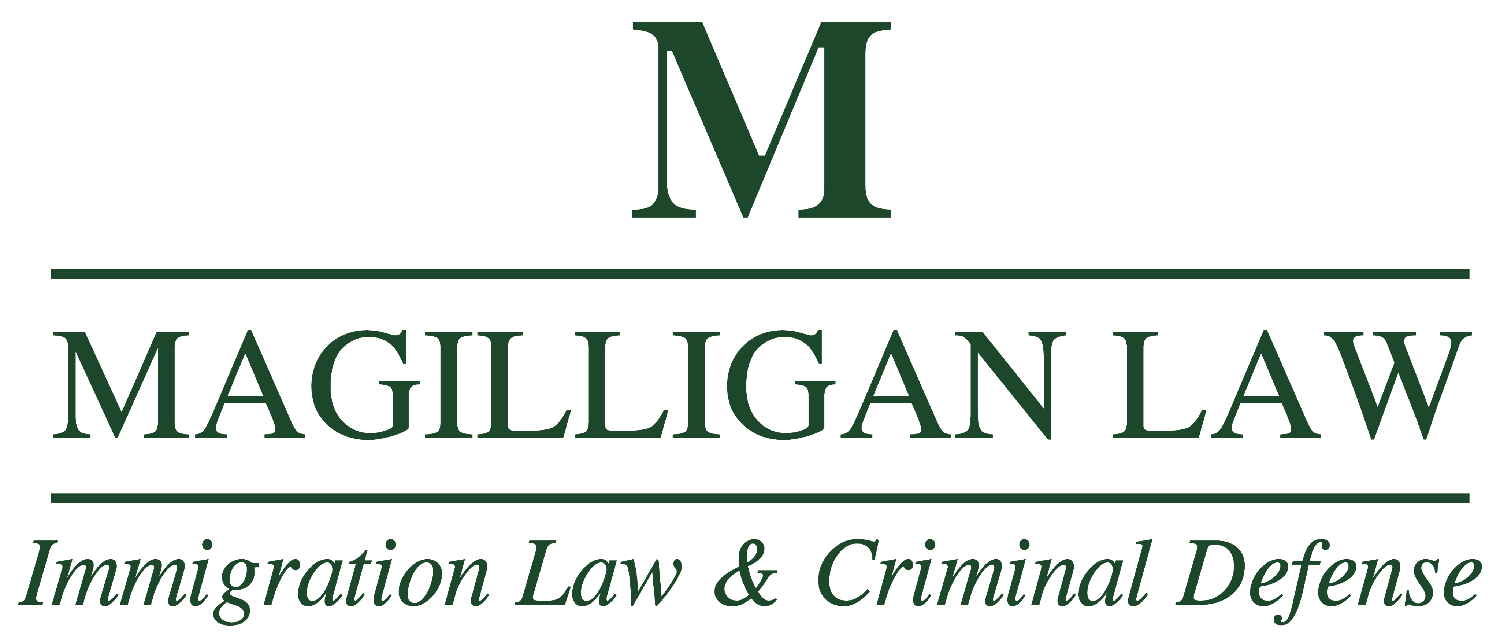White Collar Crimes Attorneys in Hollywood
Providing Options for Clients Charged With Financial Crimes
White-collar crimes are often the subject of movies and documentaries, but when you’re the one being charged, the implications are far from entertaining. From fraud to identity theft, allegations of white-collar crimes are significant and can have a far-reaching effect on your career, relationships, and freedom. Learn what qualifies as a white-collar crime, what to do if you’re under investigation, and how a criminal defense attorney can help.
Just because white-collar crimes aren’t violent doesn’t mean that they aren’t serious or aren’t aggressively prosecuted by the state. White-collar crimes can carry extensive penalties and long prison sentences, so it’s in your best interest to meet with a criminal defense attorney as soon as possible to discuss your options. At Magilligan Law, our team is here to help you understand your charges and potential defense strategies.
What Qualifies as a White Collar Crime?
White-collar crimes get their name from the fact that these are usually non-violent crimes that are more likely to be perpetrated by upper-class businesspeople. These people may be more likely to wear formal attire, such as a white shirt and tie, to work. White-collar crimes are generally financial in nature in some way, but they may also be tied to government or political corruption. There is no formal legal classification of white-collar crime, and the name is mostly used colloquially.
What Are Some Examples of White Collar Crimes?
The category of white-collar crimes is varied and includes many criminal charges. Below are some of the more common charges that are considered white-collar crimes:
- Money laundering: Concealing illegally obtained money by making it appear as though it came from a legitimate source
- Tax evasion: Not paying taxes that you owe or falsifying tax documents to reduce tax liabilities
- Identity theft: Stealing someone’s credit card number, banking information, or personal information such as a Social Security number or driver’s license for your own financial gain
- Political corruption: Abuse of power, including bribery, by those holding political or government office
- Producing or using counterfeit money: Creating or distributing fake money
- Insider trading: Using inside information on a company to gain an unfair advantage in buying or selling stocks or other securities
- Embezzlement: Misuse of funds that are entrusted to you by someone else, such as a client or company
- Intellectual property violations: Violating trademarks, copyrights, or patents
- Health care fraud: Deceiving health care facilities or insurance companies by providing false information or billing for services that weren’t actually rendered
- Crimes that involve the U.S. Postal Service: Engaging in crimes such as mail theft or fraud, often in the process of committing another crime
- Mortgage fraud: Providing false information to obtain a mortgage
There are other crimes that can be included in the white-collar category, and they are all serious offenses. If you have been accused of committing one of these crimes, contact a criminal defense attorney immediately.
Are All White Collar Crimes Felonies?
It’s common for white-collar crimes to make the news based on the amount of money involved or who the perpetrator was, but this can make it seem like a white-collar crime has to involve hundreds of thousands of dollars or be a felony. In reality, white-collar crimes can be both misdemeanors or felonies, depending on the charge. The difference in how one of these crimes is charged usually comes down to how much money is involved. In Florida, for example, fraud that involves a value of less than $300 is a first-degree misdemeanor, but crimes that involve higher dollar amounts are charged as felonies. The degree of the felony also depends on the dollar amount.
How Can I Protect My Rights During the Investigation and After Arrest?
White collar crimes investigations often take a long time, and they may involve multiple agencies at the local, state, and federal levels. Even if you aren’t facing arrest yet, it’s important to be aware of what’s going on and have legal representation involved as soon as you know you’re being investigated. Never answer questions without an attorney present, and don’t provide any information that you aren’t legally compelled to. For example, an officer might ask to look through your cell phone, but unless they have a search warrant, you don’t have to comply.
Working with an attorney who is experienced in representing clients accused of white-collar crimes is one of the most important things you can do to aid your defense. A lawyer can help you understand what’s going on, ensure you are made aware of your rights, and fight for your interests.
What Happens If I’m Convicted?
If you’re convicted of a white-collar crime, the penalties can be severe — particularly if you were charged with a felony. You could face significant jail or prison time, be ordered to pay large fines and be responsible for restitution for victims. You will also have a criminal record, which could affect your job, including losing your license and not being able to continue in your chosen line of business. White-collar crimes can also have a significant effect on your reputation in your industry and community.
If you’re under investigation or being questioned by police about a white-collar crime — or have already been arrested — contact Magilligan Law at 954-866-8058. Our Hollywood, Florida, law firm offers potential clients free 15-minute case evaluations so you can get a better understanding of what we do and how we can help in your particular situation. If you choose to move forward with our firm, we can start representing you and acting on your behalf right away.


